
New Zealand Travel Tips
Your Ultimate New Zealand Travel Guide with tips on things to do and see when you’re in New Zealand
Heading to New Zealand? Check out these Travel Essentials
SkyScanner Hotels
Find your dream hotel
Find the perfect accommodation with SkyScanner to enhance your travel experience. We’ve pulled together some top hotel deals, so you can find an amazing room at an even better price.
GetYourGuide
Plan your entertainment
Unforgettable travel experiences. No matter where your travels take you, GetYourGuide offers the best way to connect with your destination. Make memories all over the globe with our locally-vetted, expertly-curated experiences.
DiscoverCars
Rent your car
Find your rental car with Discover Cars.
Save up to 70% by comparing the best car rental deals from 700+ suppliers in 10000+ locations worldwide and FREE Cancellation.
Disclosure: My content is reader-supported, which means I may earn a small commission from links on Freewheeling Kiwi’s Assets if you make a purchase and at no cost to you. This is a way to support me so that I can keep sharing content and stories. Thanks in advance for your support 😀
I receive a fee when you get a quote from World Nomads using this link. I do not represent World Nomads. This is not a recommendation to buy travel insurance.
LEARN ABOUT NEW ZEALAND
New Zealand is a welcoming, diverse country with a history of Māori, European, Pacific Island, and Asian immigration. This rich blend of cultures, combined with geologically fascinating landscapes and unique flora and fauna, make New Zealand an exciting country to explore.
FAST FACTS ABOUT NEW ZEALAND
Capital: Wellington
New Zealand Power Voltage: 230/240 Volts, 50 Hertz. Plug I
Currency: New Zealand Dollar
Internet: Access is widely available in New Zealand. Use a VPN for an extra layer of security
Population: 5.2 Million, 83% live in an urban environment.
KNOW BEFORE YOU GO TO NEW ZEALAND
LANGUAGE
The most commonly spoken language in New Zealand is English while Maori and New Zealand Sign Language have special status as also being official languages. According to Census 2018, English, te reo Māori, Samoan, Northern Chinese (including Mandarin) and Hindi are the most widely spoken languages.
Transportation Signs
Airports: You’ll find English language signage everywhere.
Train Systems: In English
Taxis: In English
Uber: Is in New Zealand
Buses: Drivers speak English
English Directions: In English
Menus: In English
APPS
Translation apps work more or less the same way, share the same basic features, and can be used offline if you download language packs.
WeChat: Online, Android, iOS, Mac OS, Windows
WeChat is now one of the most popular forms of social media used by visitors to New Zealand outside of Facebook and has become indispensable among young urban Chinese consumers. You can download an international version, which has a translation function.
Key feature: does just about everything
Google Translate: Online and app (Android and iOS)
Key feature: real-time speech and text image translation
Virtual Private Network
For an extra layer of security, you could set up a VPN (virtual private network) before your trip.
CURRENCY
The New Zealand Dollar is the official currency of New Zealand
Symbol NZ$
Abbreviation NZD
Conversion NZ$1 = US$0.63 (September 2024)
Central Bank The Reserve Bank of New Zealand
All major credit cards are accepted in New Zealand, with Visa and Mastercard the most widely used. Many retailers in main centres also have Apple Pay. Travellers’ cheques are no longer accepted.
You can exchange foreign currency for New Zealand currency at banks, some hotels and Bureau de Change kiosks, which are in international airports and most city centres. ATM’s are readily available in urban area.
New Zealand currency is available in:
Coins with values of 10, 20 and 50 cents, $1 and $2.
Notes with values of $5, $10, $20, $50 and $100.
TIPPING
Tipping in New Zealand is not obligatory, even in restaurants and bars.
ELECTRONIC PLUGS AND TRAVEL ADAPTORS
New Zealand operates on a 230/240 watt power voltage: 230/240 and 50 Hertz. Plug I
A dual voltage rated appliance will display for example ‘INPUT: 110-240V’ on the body of the appliance or its power supply. This means that you will not need a converter or transformer but just a travel adaptor, because New Zealand operates on a 230/240 supply voltage, which is within the 110-240V range that the dual voltage appliance operates on. Your adapter will need to fit the following plug types;
For New Zealand there is one plug types, Type I
Plug type I is the plug which has three flat pins in a triangular pattern.
VISA
Having a valid passport, the right visa and completing the entry requirements are key to a trouble-free entry into New Zealand. Your passport has to be valid for at least three months beyond your intended departure date, and if required, have a valid New Zealand Visa.
You do not need a visa to visit New Zealand if you are:
A New Zealand citizen travelling on a New Zealand passport or on a foreign passport that has a New Zealand citizen endorsement
An Australian citizen travelling on an Australian passport
A foreign passport holder with a valid visa for New Zealand - including a Permanent Resident visa
If you plan to visit New Zealand for a short period such as for a holiday, you need to request a New Zealand Electronic Travel Authority (NZeTA) before you travel if you are:
A citizen of a country which has a visa waiver agreement with New Zealand which permits you can stay up to three months.
If you don’t meet the above, then you’ll need a visitor visa. The fastest and easiest way to apply for a visitor visa is online. Note: applying for and receiving a New Zealand Visa will take you longer than for other countries so allow plenty of time.
Useful Documents To Have
Passport
Original passport or travel document of your country with at least three months remaining validity on the date of travel and at least two visa pages clear of any markings, the passport should be in good condition without any damage that could render it invalid.
Travel itinerary
Travel itinerary is a travel reservation to and from New Zealand in your name, not a ticket, the itinerary should include your travel dates, flight numbers, and any layovers or connections, this document helps show your planned travel route and duration of stay.
Proof of Funds
Proof of enough money for your stay and to leave New Zealand, such as personal bank statements, pay slips from your employer, or tax records, these documents help verify that you have sufficient funds to support yourself during your stay and for your return journey.
HEALTH
Vaccines and Medications:
Check the vaccines and medicines list and visit your doctor at least a month before your trip to get vaccines or medicines you may need. Visitors bringing in a quantity of medication are advised to carry a doctor's certificate to avoid possible problems with New Zealand Customs on arrival. Doctor's prescriptions are needed to obtain certain drugs in New Zealand.
SAFETY
Before travelling, check the New Zealand Safe Travel site for official advice for New Zealanders living and travelling overseas.
Staying Safe While Travelling in New Zealand
Always lock your accommodation and vehicle and keep windows secure when you're not around.
Don’t hitchhike or accept lifts from strangers. When we walked the 3,000km Te Araroa, we hitched on several occasions and were met with nothing but kindness.
Don’t carry large amounts of cash or expensive jewellery.
Store valuables securely, ideally in a safe at your accommodation. Never leave valuables or important documents in parked vehicles.
Never leave bags, backpacks, wallets or cameras unattended in any public place, especially airports, ferry terminals or bus/railway stations.
If you're out at night, keep to well-lit places where other people are present. Don’t take shortcuts through parks or alleyways. Take a taxi or get a ride with someone you know.
Scams
New Zealand is a relatively safe travel destination but we are not crime free. It is important you take the same precautions to look after yourself and your possessions as you would at home.
World Nomads travel insurance has been designed by travellers for travellers. If you leave home without travel insurance or your policy runs out, you can buy or extend while on the road.
I receive a fee when you get a quote from World Nomads using this link. I do not represent World Nomads. This is not a recommendation to buy travel insurance.
RESOURCES FOR YOUR TRIP
Whenever I travel I start by researching with these companies as they’ve consistently proven to be the best when it comes to offering great prices.
TOP THREE THINGS TO SEE AND DO IN NEW ZEALAND
Hike in Fiordland National Park
Take your pick of either the Milford Track, the Routeburn Track or the Kepler Track. They all offer a fabulous opportunity to get up close with arguably New Zealand’s most stunning scenery. My favourite is Milford followed by kayaking in the Milford Sound, if you’re lucky, you may see some dolphins, an indescribably beautiful experience
Visit Whakarewarewa,
Explore geothermal wonders, mud pools and hot spring lakes in this Jurassic park like landscape. Immerse yourself within Maori Culture on a guided village tour and home of the Tūhourangi Ngāti Wāhiao people who have been sharing their way of life with visitors from all around the world for over 200 years. Discover how they’ve adopted and survived to live on top of a caldera, a truly intrepid human journey since the devastating eruption of Mt Tarawera in 1886.
Visit Waitomo Caves:
An ancient subterranean world in the heart of New Zealand’s beautiful central North Island. The Waitomo Cave system is a series of fascinating and dramatic natural wonders. The glow-worm grotto is one of the most popular attractions where visitors travel by boat into the spectacular cave guided by the light of thousands of unique New Zealand glow worms.
BEST TIME TO VISIT NEW ZEALAND
Recommended Time to Visit New Zealand:
New Zealand is an outdoor playground which can be explored all year round. Choose the season that best matches your activities
Summer: December to February - Warm sunny days provide the perfect backdrop for everything New Zealand has to offer, from stunning scenery and thrilling outdoor activities to incredible food and wine.
Autumn: March to May - The crisp air and clear skies make it the perfect time to explore the country’s scenic beauty, indulge in seasonal delights, and immerse yourself in rich cultural experiences.
Winter: June to August - In winter, New Zealand transforms into a snowy wonderland, perfect for both adventure seekers and those who prefer to cosy up by the fire.
Spring: September to November - Dive into the heart of New Zealand's beauty, culture, and outdoor adventures. Grab your friends, pack a light jacket, and get ready for an unforgettable season of exploration and connection.
As an island nation, our climate is extremely variable and we do joke about having four seasons in one day. Come prepared for them all!
New Zealand Blogs
Featured Great Walks Videos
Sign up to my Adventure Newsletter
You’ll be the first to be notified of the next Group Trip, access to exclusive news and content, FREE resources, great discounts and some of my favourite inspiration.
Ready to join the Adventure?
Hi and welcome to my website. I’m Sharon Evans and I’ve a passion for travel that provides adventure, challenge, nature and inspiration.
I’m a professional storyteller here and on YouTube, Instagram, Facebook, Threads and TikTok with many thousands of followers across my channels.
Join me as I share my authentic experiences from around the world 💚






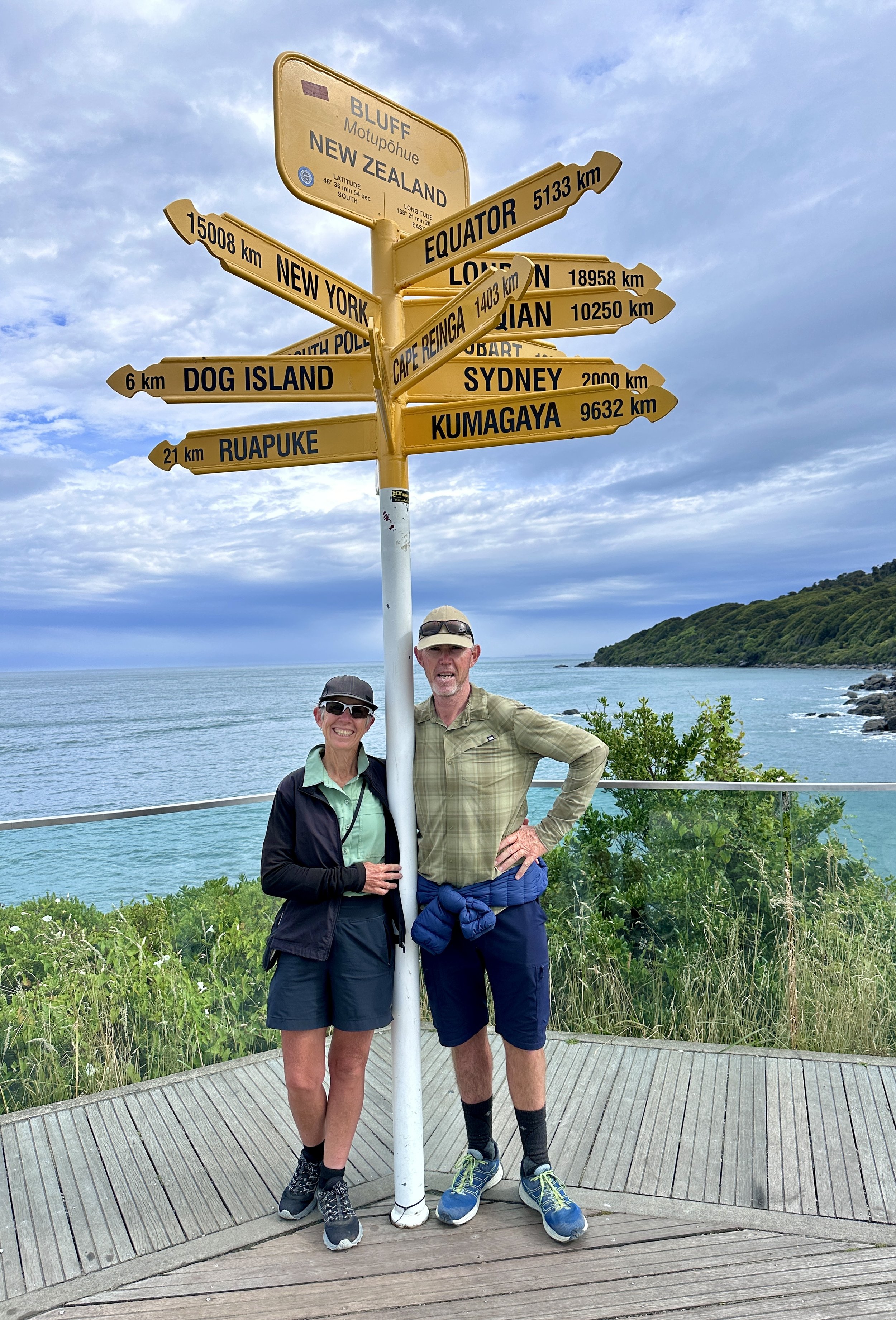



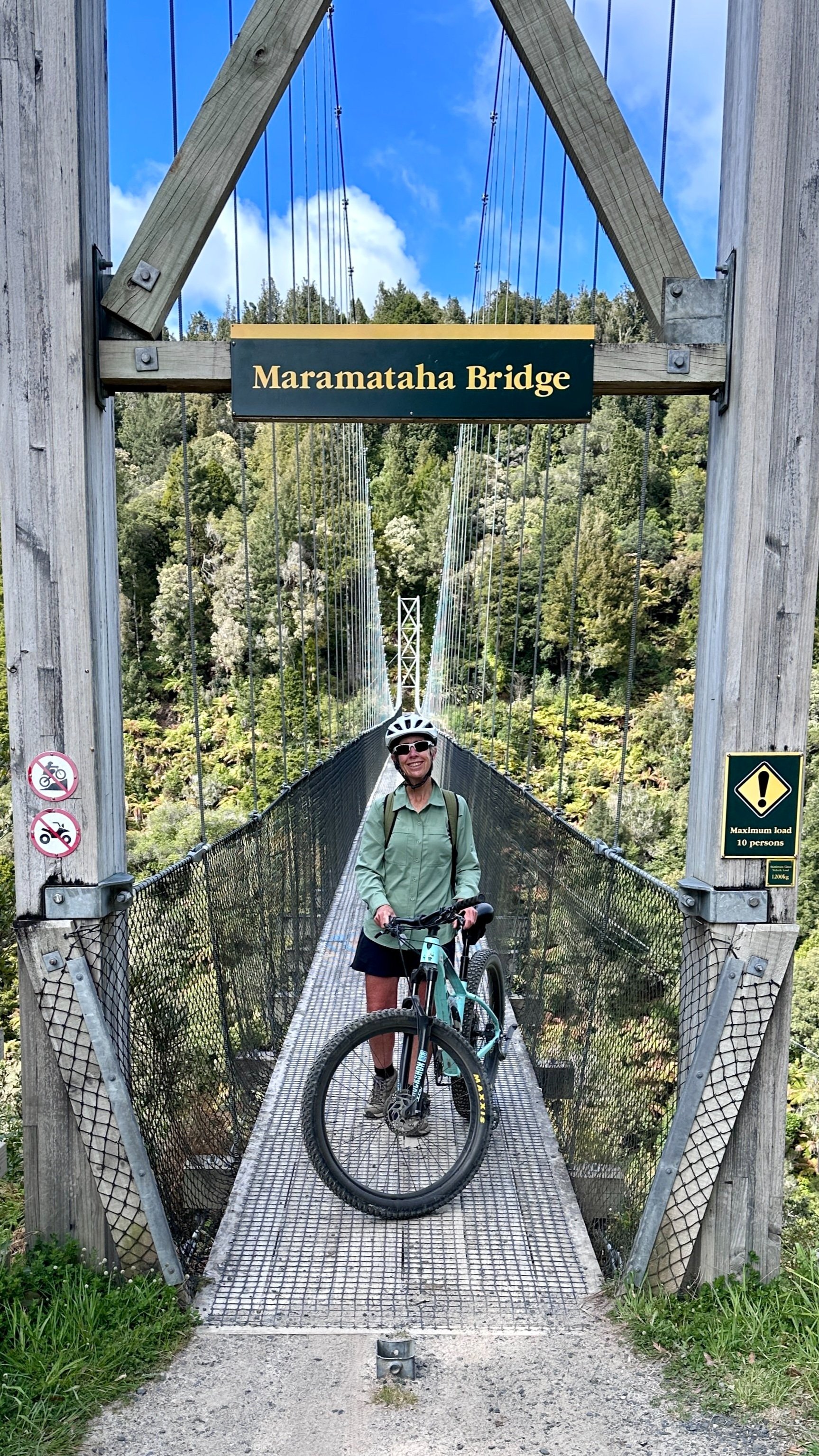
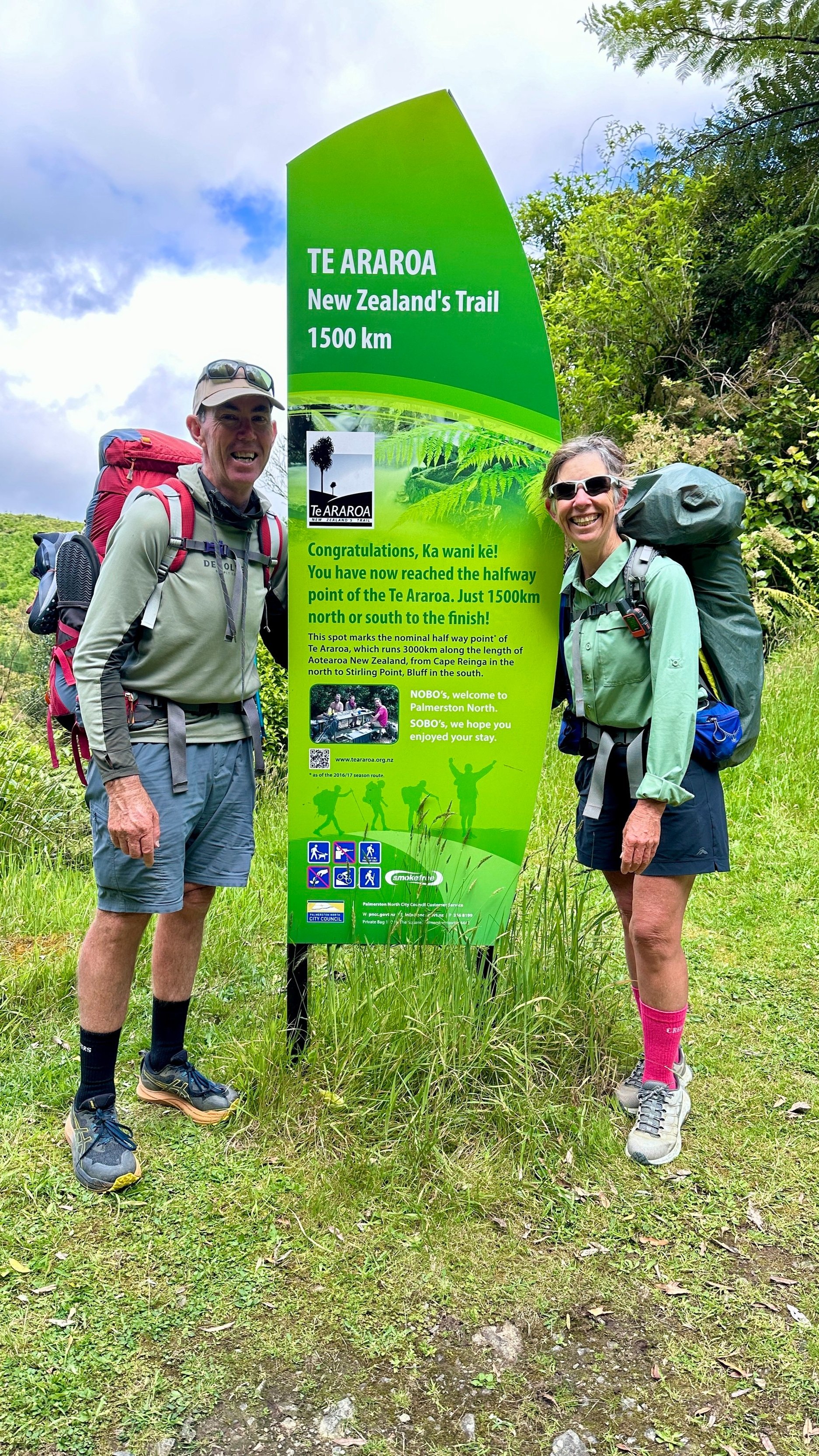








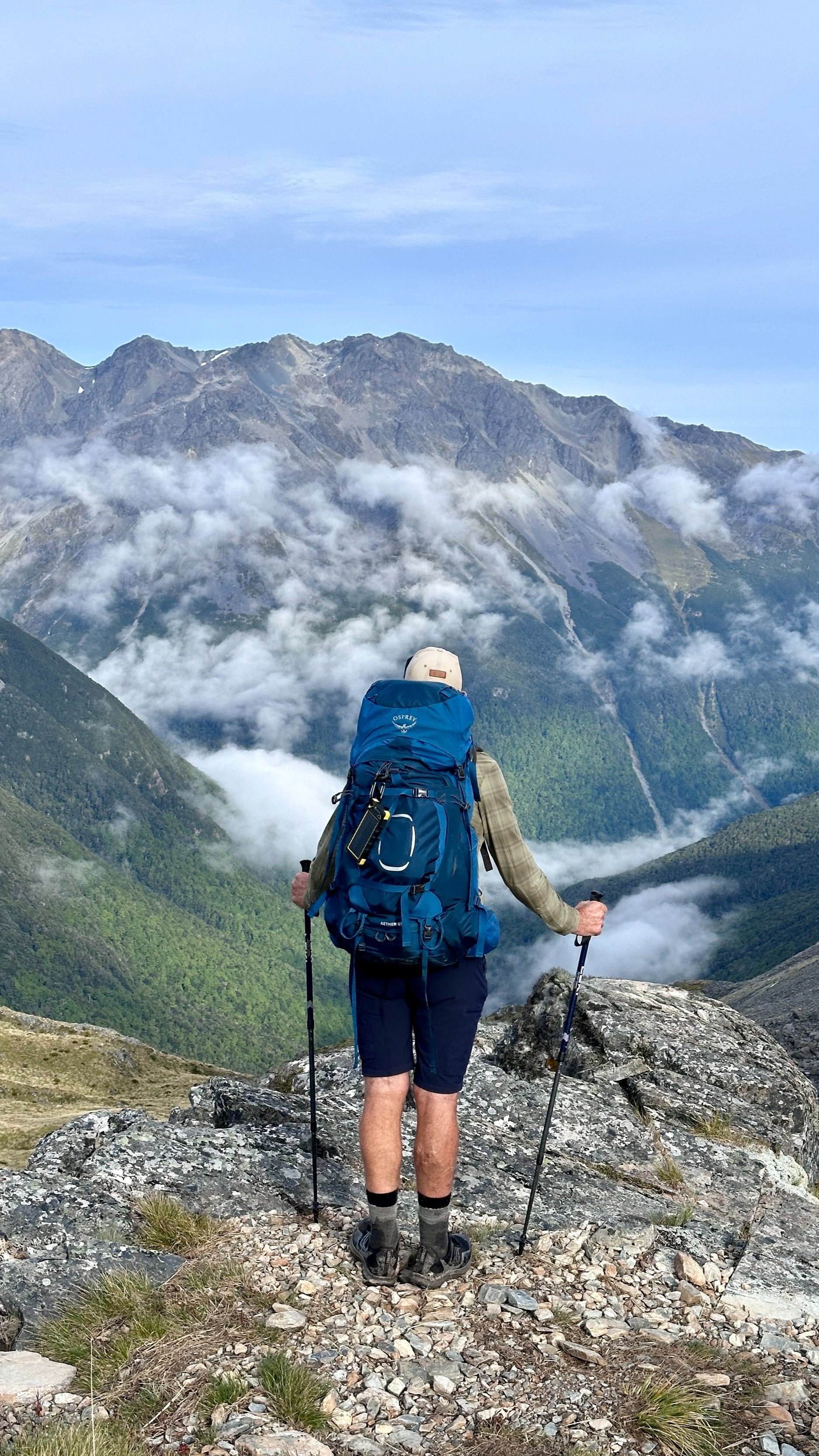


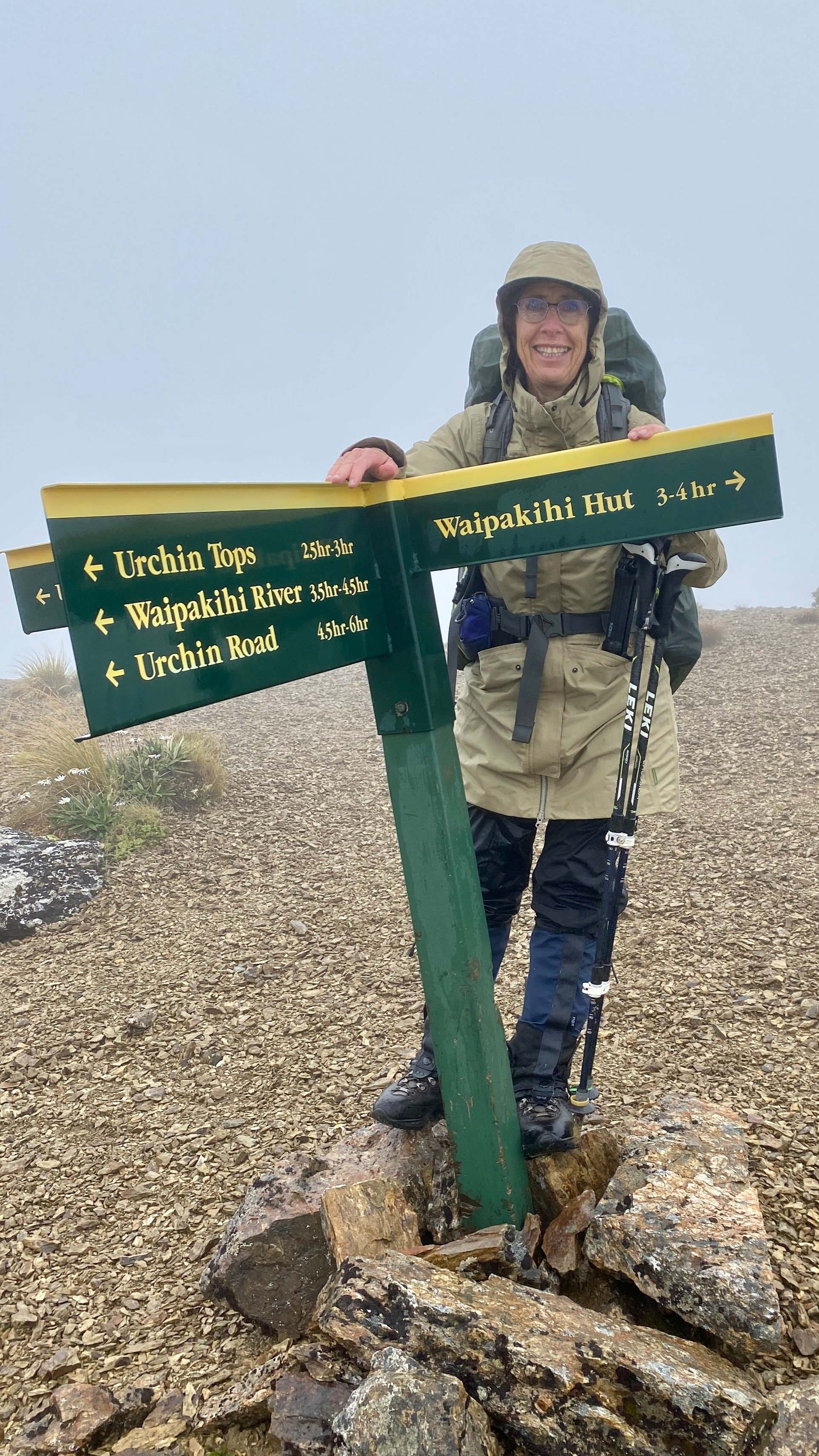














For many in the developed world, striving for material wealth, status and possessions is given precedence above all else. What if instead, we recognised the importance of relationships, community contribution and service, self development, and physical and mental health? Purposely living a simple life asks that we reconsider our priorities.